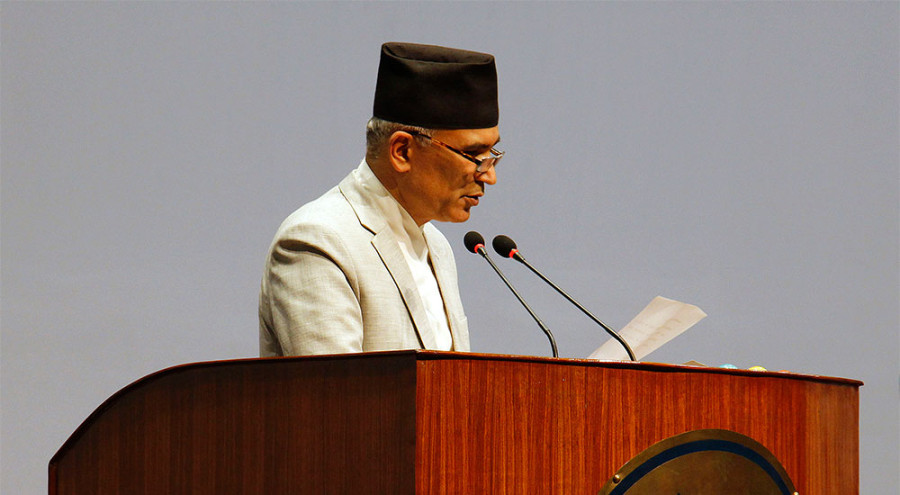Money
Income tax exemption limit hiked to Rs350k
In the budget for fiscal year 2016-17 presented on Saturday, Finance Minister Bishnu Poudel has raised the income tax exemption limit to Rs350,000 from the current Rs250,000.
Prahlad Rijal
In the budget for fiscal year 2016-17 presented on Saturday, Finance Minister Bishnu Poudel has raised the income tax exemption limit to Rs350,000 from the current Rs250,000.
As per the budget, individuals who earn less or equal to Rs350,000 and couples who earn less or equal to Rs400,000 are not liable to pay income tax.
The government, however, will levy Rs5 per litre on petroleum products as infrastructure tax. The revenue collected will be used to build the Budhigandaki Hydropower Project. The government is expected to raise more than Rs7 billion from infrastructure tax annually.
The government has also hiked tax rates on almost all liquor, cigarette and tobacco products. It has decided to waive VAT (Value Added Tax) on the import of agricultural, irrigational and livestock breeding equipment. The customs duty on the import of those equipments has been brought down to 1 percent. The government has also decided to take 1 percent custom charge on vehicles brought for hauling products of animal husbandry farms and dairy business.
Electric vehicles brought for public transportation purposes have been granted a 100 percent excise duty waiver, while the customs charge on such vehicles has been set at 1 percent. Moreover, electric vehicles brought for private purposes will also get a 100 percent excise duty exemption, while the custom charge for such vehicles has been set at 10 percent.
The VAT on medical equipment used for the treatment of diseases related to cancer, heart and kidney has been waived off, while the custom duty has been set at 1 percent. Tax payers with a business smaller or equal to Rs1 million will not be liable to conduct financial audits. The VAT threshold on services industry and product-service industry has been hiked to Rs2 million from the previous Rs1 million.
Based on the adherence to tax rules, taxpayers will be classified into three groups—best, normal and risky—depending on tax participation, bookkeeping and past tax records. The government will present a unified tax code bill at the Parliament to simply the tax law and procedures.
The government has also implemented a mandatory provision that requires the disclosure of VAT amount along with the prices of products displayed at industrial exhibitions, shops, hotel, restaurants, and bars.
Agriculture, forest and mine industries are subject to income tax waivers equal to discounts provided to special industries. Battery disposal and reproduction industries have been offered VAT waivers on imported equipment, while the customs duty on such equipment has been set at 1 percent.
As per the budget, the government will focus on implementing the tax system through electronic processes to encourage voluntary tax payment while boosting taxpayers’ morale.
The budget states the revenue leakage will be controlled through policy-level and administrative reforms, which will be implemented under the motto of “Clean Administration: Clean Business”.
The government has put an information bank project under high priority. Under this project, the people with an annual income of more than Rs4 million are required to disclose income statements for record keeping.




 20.12°C Kathmandu
20.12°C Kathmandu














